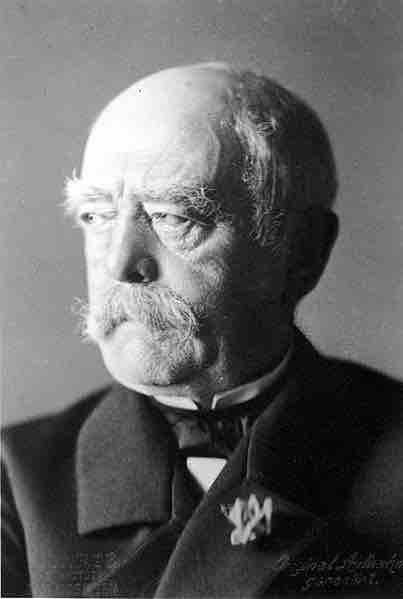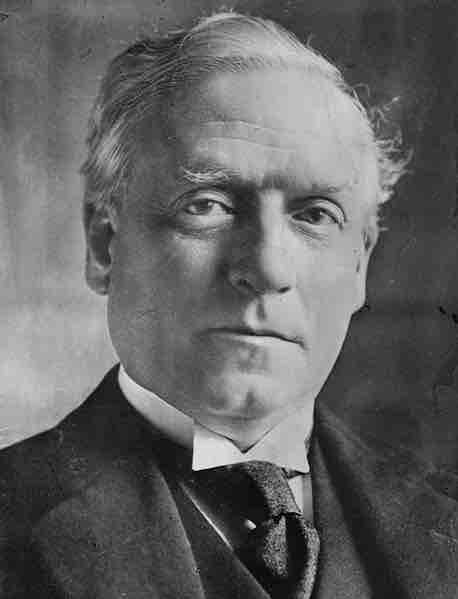Introduction
A welfare state is a "concept of government in which the state plays a key role in the protection and promotion of the economic and social well-being of its citizens. It is based on the principles of equality of opportunity, equitable distribution of wealth, and public responsibility for those unable to avail themselves of the minimal provisions for a good life. The general term may cover a variety of forms of economic and social organization. "
History of the Welfare State
Otto von Bismarck , the first Chancellor of Germany, created the modern welfare state by building on a tradition of welfare programs in Prussia and Saxony that began as early as in the 1840s, and by winning the support of business. Bismarck introduced old age pensions, accident insurance and medical care that formed the basis of the modern European welfare state. His paternalistic programs won the support of German industry because its goals were to win the support of the working class for the German Empire and reduce the outflow of immigrants to the United States, where wages were higher but welfare did not exist.

Otto von Bismarck
Otto von Bismarck, the first Chancellor of Germany, created the modern welfare state by building on a tradition of welfare programs in Prussia and Saxony that began as early as in the 1840s, and by winning the support of business.
The United Kingdom, as a modern welfare state, started to emerge with the Liberal welfare reforms of 1906–1914 under Liberal Prime Minister Herbert Asquith . These included the passing of the Old-Age Pensions Act in 1908, the introduction of free school meals in 1909, the 1909 Labour Exchanges Act, the Development Act 1909, which heralded greater Government intervention in economic development, and the enacting of the National Insurance Act 1911 setting up a national insurance contribution for unemployment and health benefits from work.

Herbert Asquith
The United Kingdom, as a modern welfare state, started to emerge with the Liberal welfare reforms of 1906–1914 under Liberal Prime Minister Herbert Asquith.
The Welfare State in the United States
Although the United States lagged far behind European countries in instituting concrete social welfare policies, the earliest and most comprehensive philosophical justification for the welfare state was produced by the American sociologist Lester Frank Ward (1841–1913, ) whom the historian Henry Steele Commager called "the father of the modern welfare state". Reforms like those instituted by Bismarck in Germany were strongly opposed by conservative thinkers such as the very influential English philosopher and evolutionary theorist Herbert Spencer, who argued that coddling the poor and unfit would simply allow them to reproduce and delay social progress. Ward set out to systematically dismantle Spencer's arguments which he saw as delaying and paralyzing progressive government action. Central to Ward's theories was his belief that a universal and comprehensive system of education was necessary if a democratic government was to function successfully. Ward's writings had a profound influence on a young generation of progressive thinkers and politicians whose work culminated in President Franklin D. Roosevelt's New Deal welfare state policies of the 1930s.
Lester Ward
Although the United States lagged far behind European countries in instituting concrete social welfare policies, the earliest and most comprehensive philosophical justification for the welfare state was produced by the American sociologist Lester Frank Ward (1841–1913) whom the historian Henry Steele Commager called "the father of the modern welfare state."
The welfare system in the United States began in the 1930s, during the Great Depression. After the Great Society legislation of the 1960s, for the first time a person who was not elderly or disabled could receive need-based aid from the federal government. Aid could include general welfare payments, health care through Medicaid, food stamps, special payments for pregnant women and young mothers, and federal and state housing benefits. In 1968, a woman receiving welfare assistance headed 4.1% of families; by 1980, the percentage increased to 10%. In the 1970s, California was the U.S. state with the most generous welfare system. The federal government pays virtually all food stamp costs. In 2008, 28.7 percent of the households headed by single women were considered poor.
Modern Model
Modern welfare programs differed from previous schemes of poverty relief due to their relatively universal coverage. The development of social insurance in Germany under Bismarck was particularly influential. Some schemes were based largely in the development of autonomous, mutualist provision of benefits. Others were founded on state provision. The term was not, however, applied to all states offering social protection. The sociologist T.H. Marshall identified the welfare state as a distinctive combination of democracy, welfare and capitalism. Examples of early welfare states in the modern world are Germany, all of the Nordic countries, the Netherlands, Uruguay and New Zealand and the United Kingdom in the 1930s.